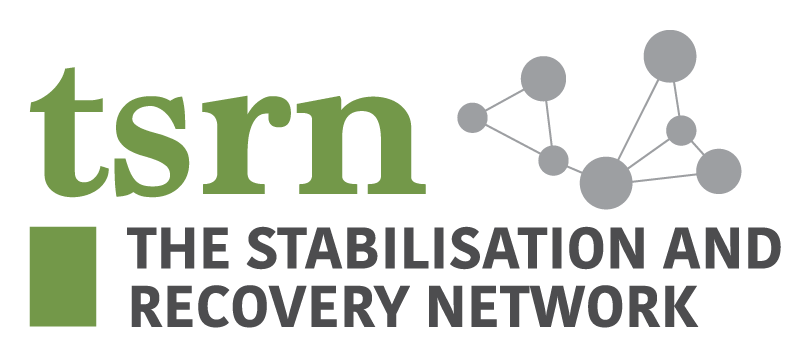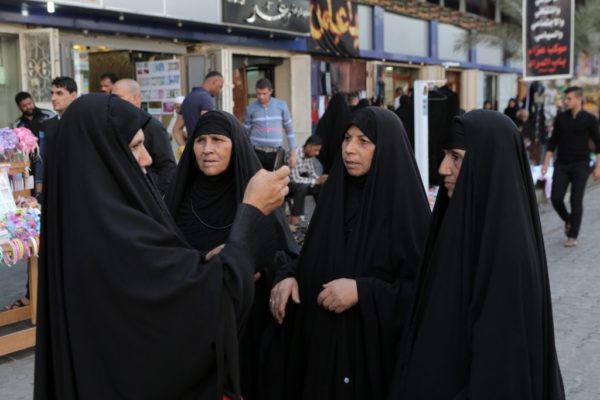We need to talk about Patriarchy by Dr Brian Brivati
The Iraqi and Rwandan governments have just signed an agreement at the UN to work together to combat rape as a weapon of war. The UN Government to Government programme will help address 1325 resolution requirements and fulfil the terms of the national action plan for women’s rights in Iraq. TSRN are implementing a series of workshops for the UK embassy in Baghdad to support survivors of sexual violence in conflict. Our workshops are small scale with policy makers, civil society activists, academics and parliamentarians. In Kirkuk, TSRN is working with the INMAA organisation and their team of mobile human rights defenders to get justice for survivors and through the Expressive Writing Programme run by Dr Meg Jensen (Kingston University) and Dr Siobhan Campbell (Open University), to give survivors the tools to tell their stories in ways that might help them recover but also bring them justice. High level, medium level, and grass roots level projects: They combine government, CSO, and academia and work to combat the stigma of sexual violence and help survivors return to their lives. The election of Donald Trump will make this work that much harder.
There is little point in dressing it up: Patriarchy permeates the current conflict and has deep and ultra violent roots in the conflicts in Iraq at least as far back as the Iran-Iraq war and genocide against the Kurds in which rape – male and female, abduction, displacement and sex trafficking all played a part. It also plays a role in the ability of survivors to seek help and in the way in which public policy sets out to protect potential victims and care for survivors. Therefore, it is important to stress that many of the features of the Daesh (also known as Islamic State) campaign, which incorporated sexual violence into its modus operandi – have been present in Iraq since at least the 1980s. Arguably, within the context of patriarchy, they have been present for much longer than that but what is striking is the similarity in approach taken by Daesh to the genocidal campaign launched against the Kurds by Saddam Hussein in the late 1980s, know as the Anfal. This speaks, of course, to the presence within Daesh of many ex-Baathists.[1]
Writing back in 2011, Katrina Lee-Koo, argued that the then prevalence of violence against women was linked directly to the invasion and was a consequence of it.[2] In contrast, Nadje Al-Ali has argued that from the 1980s “onwards, in the context of the Iran-Iraq war and the atrocities against the Kurdish population, women were increasingly used to demarcate the boundaries between communities and carry the heavy burden of honour in a society that became more and more militarised.”[3] Al-Ali does not ignore the impact of regime change, of course, but she argues, from an international feminist perspective, that it is important to look at the whole picture.
Even though sexual violence has been a feature of conflict in Iraq for a long time, the impact of Daesh has been immense and the sheer scale of the violence perpetrated by Daesh against Shia and minority groups remains staggering. As a non-state actor, Daesh, like Al Qaida before it, does not quite fit the militarised rape as a weapon of war category or indeed the state perpetrators category of the International Criminal Court (ICC). The absence of a framework creates challenges for international actors looking at these issues, but the foremost legal and judicial response to Daseh has to come from Iraq itself. It can sometimes feel like there is a competing hierarchy of “victims”. These hierarchies are defined by degrees of visibility and positions on the narrative of Iraqi history. Achieving a sense of equality in the position of survivors, removing any impunity before the law for the perpetrators and a fair and equal access to justice for any one who has experienced these crimes, is a high level outcome that faces significant political and cultural obstacles. It is important to stress that this is not intended to be a generic “Arab” or “Islamic” construction of obstacles to recognition, but rather a sense of realism about the barriers to looking at these issues that came from the discussion amongst the delegates and is reflected in the wider literature.
The dominant narrative of Daesh as the perpetrators of sexual violence may allow survivors to come forward more easily than if they were abused by government or Peshmerga forces – this is particularly true in how other community members might react to a survivor voicing their experience. However, this dynamic needs to be considered if all survivors of sexual violence are to have the opportunity to speak out. There is a general acceptance of agency on behalf of Daesh and their commanders for the wilful use of rape and sexual violence as a weapon of war and how that implicated Daesh leadership under the international mandate of the ICC. There is little or no discussion in Iraq of whether the government and its allies have allowed or even ordered the use of sexual violence against Daesh, or those seen to collaborate with them as a dimension of warfare against them. This is not an uncommon route of retaliation in warfare, for example reprisal rape is a dynamic that has played out in the Israeli-Palestinian conflict. In turn of course this addresses two central concerns of the Preventing Sexual Violence Initiative (PSVI) agenda – the challenge to and elimination of immunity for perpetration of these crimes and the overall focus on military perpetrators.[4]
Identifying features of a social system that lead to stigmatisation of survivors of sexual violence can only be challenged is from within, from the society itself being willing and able to change itself. Why should it change? This depends on whether we think this stigma is intrinsic or extrinsic to the cultural and social construct of Iraq. If it is in some way intrinsic to this culture, then is that so very different to the response to sexual violence in any other culture. Indeed, it is very important that we avoid the essentialism inherent in approaches to these issues from a western-Islam construct. We need to approach this as we would in any culture, from a gendered perspective. If the victims of sexual violence are treated differently in Iraq than the victims of other kinds of violence then this is a problem of patriarchal rather than Islamic culture. If this patriarchy dominates the response to both male and female victims of sexual violence, then we need to construct our public policy responses in such a way that this patriarchy is challenged. The objective should be that all survivors of violence are treated equally and appropriately.
Western values of gender equality and freedom have long be used to denigrate Arabic culture for its misogyny and inequality. Any outsider should approach working this space with humility. Now that the most progressive and, as it turns out, the most conservative western country has elected the epitome of patriarchy as President that humility should perhaps turn to shame. If the US can elect Trump, what chance do we have against patriarchies which normalise rape as an act of war? If in the 21st century a person like that can be elected, albeit with a minority of the popular vote, if a person like that is acceptable to so many women in the US, then what chance do we stand in changing the conversation in other countries or in challenging the impunity that patriarchy perpetuates. I am sure this will be a feature of the next workshop in our programme!
[1] It is important to also stress that sexual violence did not stop with the invasion. The Organization of Women’s Freedom in Iraq estimates that 2,000 women went missing in Iraq between 2003 and 2006, other groups provide higher estimates for the number trafficked. Quoted in Nadje Al-Ali, Sexual Violence in Iraq: Challenges for transitional feminist politics, European Journal of Women’s studies, 1-18, 2016
[2] Katrina Lee-Koo, Gender-Based Violence Against Civilian Women in Post invasion Iraq: (re) Politcizing George W. Bush’s Silence Legacy, Violence Against Women, 17(12), 1619-1634, 2011
[3] Nadje Al-Ali, Sexual Violence in Iraq: Challenges for transitional feminist politics, European Journal of Women’s studies, 1-18, 2016
[4] For an overall discussion of the strengths and weaknesses of PSVI approach which is weighted against on balance see Paul Kirby, “Ending Sexual violence in conflict: the Preventing Sexual Violence Initiative and its critics”, International Affairs, 91:3 (2015) 457-472

